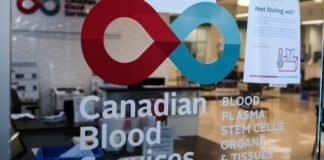
To lower victims’ burdens, the new bill would require all hospitals in the state with an emergency room to always have trained staff available to conduct forensic rape kit evaluations. Meanwhile, in Connecticut, a shortage of health care workers lends legal urgency to recruitment efforts.
AP: West Virginia Senate Passes Mandate On Rape Kit Training
Victims of sexual assault in West Virginia may have an easier time finding health care providers to conduct forensic examinations and collect rape kits if a bill passed Monday by the state Senate becomes law. Currently, some sexual assault victims have to travel hours to find a provider properly trained to complete forensic examinations, Republican Sen. Michael Maroney said. There are only a few hospitals in northern West Virginia with personnel who are properly trained to collect evidence from rape victims. (Willingham, 1/23)
In other health news from across the U.S. —
The CT Mirror: CT Health Care Worker Shortage Impels Lawmakers To Find Solutions
Leaders of the legislature’s Public Health Committee said Monday they are committed to tackling a health care worker shortage by exploring mandated nurse staffing ratios, closing a loophole that allows hospitals to impose mandatory overtime, and examining recruitment and retention strategies to boost employee numbers. (Carlesso, 1/23)
Wyoming Public Radio: Wyoming’s Version Of ‘Don’t Say Gay’ Advances To Senate Floor
A bill working its way through the Wyoming Senate could forbid teachers from discussing sexual orientation and gender identity in the classroom. Opponents say it stifles free speech and puts queer youth at risk. The bill closely resembles the famed “Don’t Say Gay” bill passed in Florida last year. According to research, trans youth are at a much higher risk for depression and suicide than their cisgender peers. It’s been found that risk is higher in communities where trans youth are not accepted. (Victor, 1/20)
The Colorado Sun: Colorado Middle And High Schoolers Could Begin Receiving Annual Mental Health Checks
The Colorado legislature is aiming to make it easier for youth across the state to access free therapy by creating a program in which kids sixth through 12th grade can get an in-school mental health assessment. If approved by state lawmakers, House Bill 1003 would allow public schools to opt into the program, which would be run by the Colorado Department of Public Health and Environment. (Wenzler, 1/23)
San Francisco Chronicle: UC Berkeley Agrees To Safety Measures After Cheerleader Concussion Lawsuit
High-flying cheerleaders at UC Berkeley sporting events will receive new protection and training under a $695,000 settlement with a former student who suffered three concussions in five months during acrobatic cheerleading in 2017-18. (Egelko, 1/23)
Bangor Daily News: Wastewater Contaminated With PFAS Is Flowing Into Maine’s Rivers
Statewide results are still being compiled, but many individual wastewater treatment plant operators have said they are finding the chemicals in their treated waste, which gets discharged into waterways that sustain fish and other aquatic life, and sometimes feed communities’ drinking water wells. (Rhoda, 1/23)
Anchorage Daily News: Senior Clinic At Alaska Regional To Close In February, Leaving Vulnerable Patients With Limited Options For Care
A longtime Anchorage medical clinic for seniors has announced it’s closing at the end of February, prompting concern from patients and providers about dwindling health care options locally for some of Anchorage’s most vulnerable residents. (Berman, 1/23)
Las Vegas Review-Journal: Cancer Deaths Spur Worries About Decades-Old Native School
Leilani Thorpe has always been concerned about cancer, as three of her family members have died from the disease. But after her mother died from stomach cancer in 2017, she was in shock. Thorpe, who lives in the small town of Owyhee on the Shoshone-Paiute Tribes of the Duck Valley Indian Reservation, knows many fellow residents who had family members die of cancer since the 1970s. (Hill, 1/23)
This is part of the KHN Morning Briefing, a summary of health policy coverage from major news organizations. Sign up for an email subscription.








